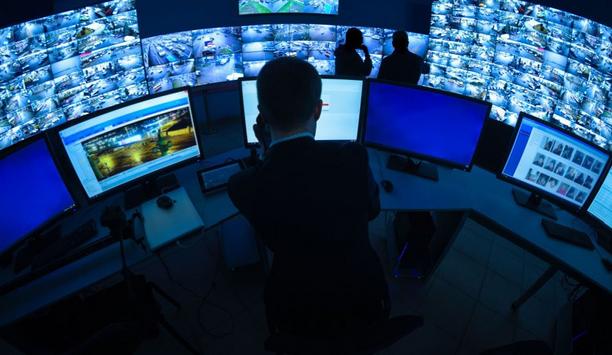The City of Pasadena, Calif. is home to the Rose Bowl, nearly 140,000 people and numerous public facilities where 3,000 residents work each day. Among them is a remote reservoir that, until recently, was being used to illegally dump hazardous materials. Other reports claimed someone was jumping the fence and tampering with the city’s water controls. Each time suspicious activity was reported, the city would dispatch police personnel to investigate – an action that cost the city as much as $15,000 per incident.
David Chau, senior information systems engineer for Pasadena, knew something needed to be done about the reservoir’s trespassers. He also wanted to comply with ISO recommendations for upgrading the security system of Pasadena’s power facilities after September 11th. He contacted Stewart and Associates, a Los Angeles-based security dealer, to discuss the city’s options in keeping their public facilities safe and secure. Richard Chiang, part owner of Stewart and Associates, consulted Honeywell with the challenging project – one that included managing the reservoir and power plant’s security, as well as a large city office building and yards where the city keeps its fleet vehicles. Chau chose the Honeywell system over competitors based on the technology, support and responsiveness, Chiang said.
“With Honeywell’s help, Stewart and Associates was able to tailor the design of the security systems to meet Pasadena’s requirements, which are different for every facility,” Chiang said. “Our client was also impressed with Honeywell’s proven integration of technology, reputation for reliability and product versatility.”
Providing security for the power plant was extremely important to the city because of the type of work that occurs there. “The power plant employs hundreds of people and spans a large area. With chemicals being delivered each day, there’s always the possibility for something to go wrong,” Chau said. “It was crucial to install a tight security system to ensure the safety of the plant and all of its employees.”
Stewart and Associates installed cameras in and around all facilities, and issued Smart Cards for the city’s employees. When employees arrive at work, they scan the ir Smart Card to receive access to the building. The card contains personal information about each employee and allows the city to know who is in each public facility at any given time.
“Smart Cards are upgradeable, so Pasadena can choose to add additional features to the cards in the future,” said Troy Riedel, regional sales manager for Honeywell. “Each employee’s card has the potential to go beyond basic credentials and serve as a credit card, a library card and provide parking garage access. Individual fingerprints can also be added to the cards for an added degree of security.”
Equipping each employee with a Smart Card ultimately means increased safety for Pasadena. “It is important to the city to know exactly who is in the facilities at all times,” Chau said. “In the case of a natural disaster or other emergency, the city can now notify families with important information about their loved ones.”
Cameras and Smart Cards are part of a larger security solution based on the integration of two products: WIN-PAK™ and RapidEye™. WIN-PAK™ allows all security system components to be integrated in one user interface, making it easier to manage systems with multiple locations like Pasadena. RapidEye™ is a digital video and transmission system, combining digital recording, multiplexing, remote viewing, alarm detection and pan-tilt-zoom (PTZ) camera control.
“WIN-PAK™ and RapidEye™ are the ideal applications for a project of this magnitude,” said Riedel. “With hundreds of cameras and thousands of Smart Cards issued, managing all information from one screen means increased accuracy and efficiency.”
Soon after the cameras were installed at the Pasadena reservoir, the intruder’s license plate number was caught on tape and illegal dumping was history. Chau is extremely pleased with the results of the new installations, and Stewart and Associates were awarded a renewable one-year contract with Pasadena. Chiang estimates the city will save as much as $24,000 per site in incident investigations each year.
The city has plans to install security equipment in 23 additional remote public facilities, including an additional power plant location, water treatment facility, power grid, dispatch centre and 12 power substations. Chau is also considering adding logical access – an extra security precaution in which employees place their Smart Card on a pad next to their computer upon arriving at their desk. The pad grants permission to certain computer features and tracks all computer activity.
“Our goal is to be prepared for any situation while keeping our employees safe and our facilities secure,” Chau said. “We will achieve this high level of security by advancing right alongside security and access control technology.” Richard Chiang, along with his business associate Kathleen Stewart, will soon be demonstrating the Pasadena project’s success to neighbouring areas Glendale, Laverne, Los Angeles County and the Metropolitan Transit Authority (MTA).












